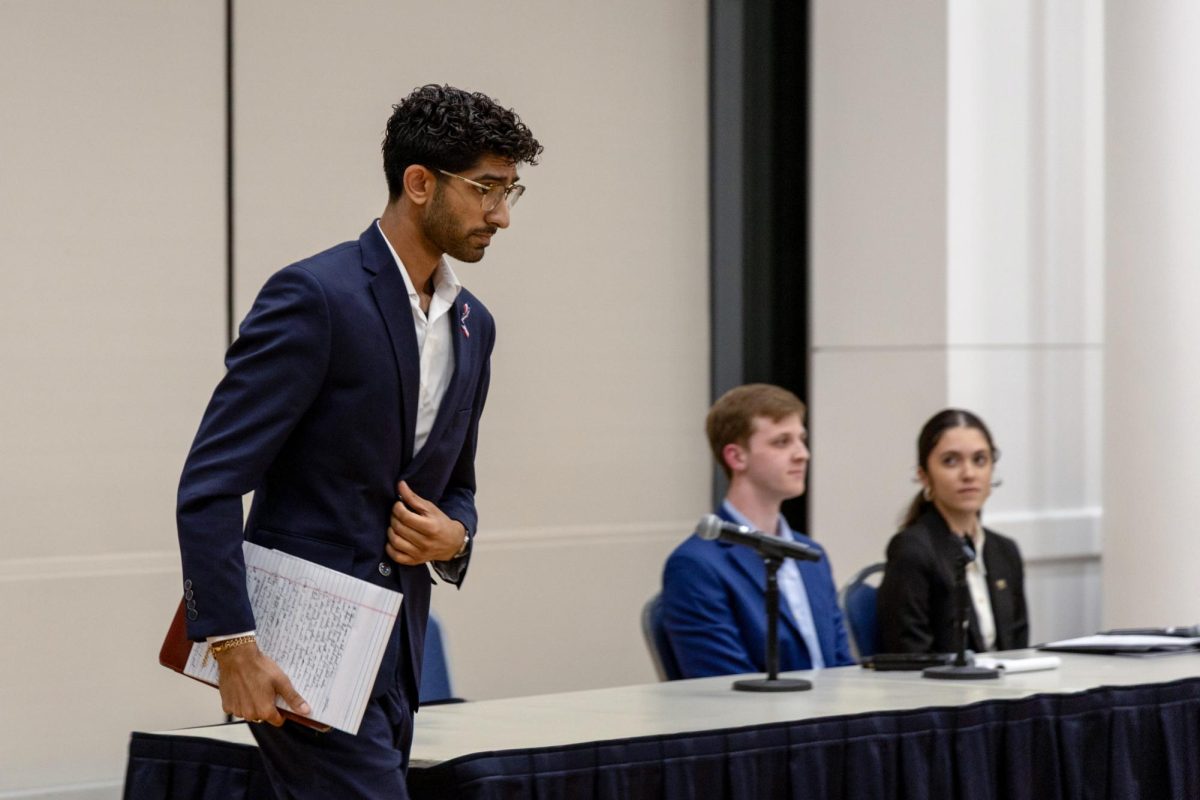GW President Stephen Joel Trachtenberg said the University is moving toward assigning student identification numbers without using Social Security numbers to protect students’ identities in response to student and parent concerns.
The nine-digit Social Security number is the most commonly used record keeping identifier in the country and is used on many college campuses across the nation. The practice which has come under increasing fire from privacy advocates, who say imposters can use the number to steal an individual’s personal information.
Many students said they are unhappy with the University’s automatic use of their social security numbers as their student identification.
“I think social security numbers should be more private,” said junior Vasily Starodubtsev. “If you know certain information about a person, it allows you to get access to everything else.”
Freshman Joe Pounder was glad to learn he could change his student identification number because he does not like the University’s system.
“To use our Social Security number for everything is absurd,” he said. “It would be advantageous to go through the process of changing it.”
Identity theft, a crime in which an someone uses information such as a Social Security number to obtain credit or services in the name of the victim, is becoming an “epidemic” said Linda Foley, executive director and founder of the identity theft resource center in San Diego.
Foley said students must put “pressure” on the administration to use a number other than your social security number as identification.
“Colleges say they put you in safe environments and they insist they do something about date rape and drinking,” Foley said. “That same concern should be there with the Social Security number.”
Brian Selinsky, director of Banner GW’s main administrative software, said though officials debated changing the identification number, no changes have been proposed. Selinsky said a change would be both complex and expensive.
In the last two years, states like New York and Illinois have ordered colleges and universities to stop using Social Security numbers as identification. Though the numbers remain on file, they are only used when reporting information to the federal government.
About four years ago, Boston University changed its social security identification to a randomly assigned eight-digit system, said university spokesman Colin Riley.
The change was not simply for new identification numbers. When creating their electronic security cards, similar to GWorld cards, the school decided to change identification numbers as well.
“When you know you’ll be doing something big, you try to do as much as you can,” Riley said.
He added that the change did not happen overnight and said the identification system change was expensive and time consuming.
Schools have been dealing with issues of privacy since 1974 when Congress passed the Family Educational Right to Privacy Act. The law requires schools to assure students some protection for the privacy of their records, but it allows schools to keep the numbers in school files.
Carolyn Cheezum, a spokeswoman for the Social Security Administration, said the numbers were only designed for a few purposes.
“The sole purpose is to track individuals’ wages and to pay social security benefits,” she said.
Cheezum added that though the numbers were not designed for other uses, the SSA has no laws to restrict their usage.
“The use of the social security number is beyond the scope of our jurisdiction,” Cheezum said. “We cannot prohibit any group or individual or organization from using the number.”
According to the Federal Trade Commission, the District has the highest rate per capita of identity theft crimes. This means that though more cases occur in California and New York, per 100,000 people, one has the most risk of becoming a victim in D.C.
Junior Darby O’Donnell said she only puts her number on official school and government forms. O’Donnell said she is worried other documents could get lost or stolen, and does not want to take a chance with her number.






